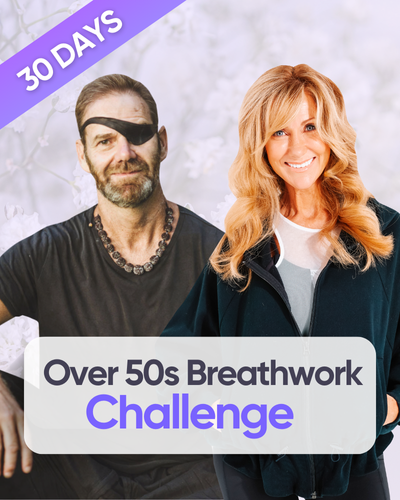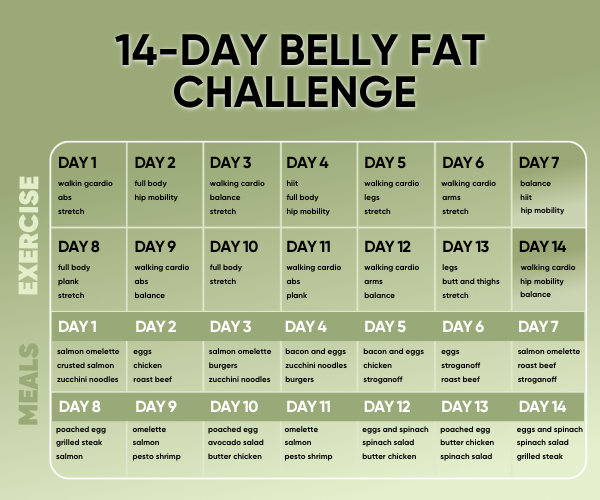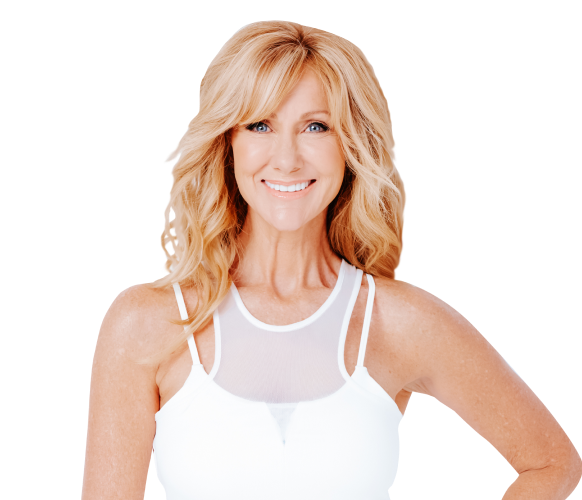
Did you know that nearly 61% of postmenopausal women report having trouble sleeping? Or that sleep deprivation increases the risk of cognitive decline by 33% in older adults? Just one night of poor sleep—only four hours—can also reduce your immune system’s natural killer cell activity by 70%, leaving you more vulnerable to illness and disease.
If you’re over 50 and struggling with poor sleep, you’re not alone. Sleep issues are incredibly common among women during and after menopause, and the consequences go far beyond feeling tired.
Sleep plays a vital role in brain health, memory, and overall well-being. Poor sleep not only increases brain fog and forgetfulness but also raises the risk of mood disorders, cognitive decline, and even Alzheimer’s disease.
In this blog, we’ll uncover why sleep matters, the science behind its impact on your brain, and actionable tips to help you rest better and protect your mind.
Why Women Over 50 Struggle With Sleep

As women transition through menopause, significant hormonal changes can wreak havoc on sleep patterns. Common culprits include:
- Hormonal Shifts: Fluctuations in estrogen and progesterone can lead to night sweats, hot flashes, and insomnia.
- Sleep Disruptions: Conditions like restless leg syndrome, frequent awakening, and lighter sleep stages are more prevalent.
- Lifestyle Factors: Stress, screen time, and irregular sleep schedules exacerbate the problem.
In fact, nearly 61% of postmenopausal women report having trouble sleeping, according to the National Sleep Foundation.

Menopause & Nutrition Weight Loss Bundle
Tired of struggling with menopause symptoms? Wish you had a resource to help you navigate this transformative phase?
Introducing the Menopause & Nutrition Weight Loss Bundle – a curated collection of expert advice, tailored nutrition plans, and effective weight loss strategies. Take control of your health and feel your best!
How Poor Sleep Affects Your Brain

Think of your brain as a washing machine. Every day, it accumulates “dirty laundry” in the form of toxins, stress, and memories. Sleep is when your brain activates its deep-cleaning cycle, flushing out harmful waste products like amyloid plaque, which has been linked to Alzheimer’s disease.
The Science Behind Sleep’s Cleaning Process:
Cerebrospinal Fluid: During sleep, your brain releases cerebrospinal fluid, a natural “detergent” that clears toxins.
Glial Cell Shrinkage: Supporting brain cells shrink, creating more space for cerebrospinal fluid (CSF) to spurt into all the nooks and crannies of your brain. This process ensures that harmful waste products, such as amyloid plaque, are flushed out effectively. However, if you don’t enter deep sleep, the glial cells don’t shrink, and this critical cleaning process can’t occur. Over time, this can lead to a buildup of amyloid plaque, increasing the risk of cognitive decline and diseases like Alzheimer’s.
Deep Sleep Phase: The most intense cleaning happens during deep sleep, about 90 minutes after you fall asleep.
Without enough quality sleep, these processes are interrupted, leading to toxin buildup and long-term damage to brain health. (Source: Science Daily)
READ ALSO: Here’s How Effective Melatonin is for Memory and Longevity
The Immediate and Long-Term Effects of Sleep Deprivation
Short-Term Impacts:
- Impaired attention and focus
- Reduced reaction time and motor function
- Mood disturbances, such as irritability and anxiety
Long-Term Consequences:
- Permanent neuron loss in critical areas of the brain, like the locus coeruleus, which is vital for cognitive function (Source: NIH)
- Increased risk of cognitive decline and Alzheimer’s disease
- Higher likelihood of developing cardiovascular diseases
Practical Tips to Improve Your Sleep and Protect Your Brain

Here are evidence-backed strategies to help you get the restorative sleep your brain needs:
1. Stick to a Consistent Sleep Schedule
Go to bed and wake up at the same time every day, even on weekends. This strengthens your body’s natural circadian rhythm.
2. Create a Restful Sleep Environment
- Keep your bedroom cool, dark, and quiet.
- Use blackout curtains and a white noise machine.
- Maintain a bedroom temperature around 65°F (18°C).
3. Limit Screen Time and Light Exposure Before Bed
Blue light from screens suppresses melatonin, the hormone that helps you fall asleep. Avoid screens for at least an hour before bed. Additionally, wear blue light-blocking glasses in the evening to reduce exposure to artificial light. Replace bright overhead lighting in your home with soft lamp lighting to create a calming atmosphere.
4. Exercise Regularly
Aim for a minimum of 30 minutes of moderate activity most days of the week. As you increase your fitness, include 3 strength training sessions per week and 3 sessions of high-intensity drills.
Include HIIT workouts, sprinting, walking workouts, and weight training to maximize the benefits for both sleep and brain health. These types of exercises boost brain-derived neurotrophic factor (BDNF), a protein that supports brain health. Check out my workouts here.
5. Mind What You Eat and Drink
- Avoid heavy meals, caffeine, and alcohol in the evening.
- Opt for a light snack, like a banana or almonds, if you’re hungry before bed.
6. Relax Before Bed
Engage in calming activities such as:
- Meditation
- Reading a book
- Deep breathing exercises
- Gentle yoga
7. Natural Remedies for Better Sleep
- Lavender Essential Oil: Diffusing lavender oil or applying it to your pillow can promote a sense of calm and improve sleep quality.
- Magnesium Supplements: Magnesium supports relaxation and may help reduce symptoms of insomnia. Consider taking a magnesium glycinate or magnesium threonate supplement before bed. Glycinate is known for its calming effects, while threonate not only supports restful sleep but also promotes brain health and cognitive function.
- Herbal Teas: Chamomile, valerian root, and passionflower teas are known for their calming properties.
READ ALSO: The 2 Anti-Aging Supplements Every Woman Needs

The No. 1 Breathwork Course for Women Over 50
1 in 3 women over 50 experience chronic fatigue, and nearly 50% struggle with insomnia. With high stress and menopause-related mood swings, it’s time for effective, natural wellness tools.
Our Pioneering Breathwork Course helps you find emotional balance, reduce stress, and boost vitality—enhancing your natural beauty. Join today and feel the change!
Exercise: A Daily Boost for Your Brain
Exercise is like running a dishwasher for your mind, especially when poor sleep is getting in the way. It boosts the production of BDNF (Brain-Derived Neurotrophic Factor), a protein that helps clear amyloid plaque, linked to Alzheimer’s disease, and supports the growth of new brain cells.
Regular physical activity also helps lower cortisol levels, which can disrupt sleep, and promotes the production of feel-good hormones, making it easier to fall asleep and enjoy deeper, restorative rest.
A study from the Mayo Clinic found that women who exercise regularly reduce their risk of cognitive decline by 40%. (Source: Mayo Clinic).
So, if poor sleep has been affecting your brain health, exercise can be a powerful tool. Not only does it help improve sleep quality, but it also protects your mind, keeping it sharp and healthy for years to come.
The Role of Mitochondria in Brain Health
Your brain runs on tiny energy factories called mitochondria. These microscopic powerhouses provide the energy your brain needs to think clearly, focus, and remember important details.
When they’re functioning well, your brain has the vitality to stay sharp, even in the face of challenges. However, poor sleep can seriously disrupt the function of these vital energy factories. Just like a car needs fuel to run smoothly, your brain needs quality sleep to keep its mitochondria working efficiently.
Sleep is absolutely critical for recharging these factories, allowing them to restore and regenerate. Without this vital rest, your brain’s mitochondria start to struggle, and it’s like trying to run a washing machine without electricity—nothing works properly.
Exercise also plays an important role by strengthening the mitochondria, giving them the boost they need to continue powering your brain. So, if you’re dealing with poor sleep, it’s important to prioritize rest and physical activity to keep your mitochondria—and your mind—working at their best.
READ ALSO: 10 Tips For Better Sleep When You Are Over 50
Shocking Statistics You Need to Know
- Sleep deprivation increases the risk of Alzheimer’s disease by 33% (Source: Alzheimer’s Association).
- Less than six hours of sleep per night is linked to higher blood pressure and memory loss (Source: Sleep Foundation).
- Just one night of poor sleep can impair cognitive performance by up to 30% (Source: NIH).
- About 46% of women over 40 report experiencing hot flashes and night sweats that disrupt sleep (Source: Sleep Foundation).
Final Thoughts
Sleep is one of the most powerful tools for protecting your brain, improving memory, and staying sharp as you age. By prioritizing quality rest, you can give your brain the time it needs to detox, recharge, and prepare for the day ahead.
Remember, your brain’s washing machine is ready every night—just give it the time and care it needs to run the cycle properly. Start with small changes, and over time, you’ll notice big improvements in your sleep and overall well-being.
Sweet dreams, and sleep well!
With love,
Schellea
References:
National Center for Biotechnology Information. (2016). Sleep and Alzheimer’s disease: The role of the glymphatic system. Retrieved from https://pmc.ncbi.nlm.nih.gov/articles/PMC4651462/
American Academy of Sleep Medicine. (2009). Sleep and its impact on cognitive performance. Journal of Clinical Sleep Medicine, 5(2), S20. https://jcsm.aasm.org/doi/10.5664/jcsm.5.2S.S20
National Sleep Foundation. (2021). Sleep in America® poll: Summary of findings. Retrieved from https://www.thensf.org/wp-content/uploads/2021/03/2007-SIA-Summary_Of_Findings.pdf
Alzheimer’s Association. (2020). Alzheimer’s & dementia: The impact of sleep on the brain. Alzheimer’s & Dementia Journal, 16(9), 1235-1242. https://alz-journals.onlinelibrary.wiley.com/doi/10.1002/alz.13016
Sleep Center Information. (2021). Which hormones affect sleep?. Retrieved from https://sleepcenterinfo.com/blog/which-hormones-affect-sleep/
Medical News Today. (2021). Insufficient sleep and high blood pressure may raise the risk of brain aging and injury. Retrieved from https://www.medicalnewstoday.com/articles/insufficient-sleep-high-blood-pressure-may-raise-risk-brain-aging-injury
Natinal Institute of Neurological Disorders and Stroke. (2020). Brain basics: Understanding sleep. Retrieved from https://ninds.nih.gov/health-information/public-education/brain-basics/brain-basics-understanding-sleep
Maine Department of Transportation. (2021). Sleep deprivation and its impact on safety. Retrieved from https://www1.maine.gov/mdot/challengeme/topics/docs/2021/1121SleepDeprivation.pdf
Boston University. (2019). Cerebrospinal fluid and brain cleaning during sleep. Retrieved from https://www.bu.edu/articles/2019/cerebrospinal-fluid-washing-in-brain-during-sleep/
National Center for Biotechnology Information. (2017). Physical activity and sleep: A review of the evidence. Retrieved from https://pmc.ncbi.nlm.nih.gov/articles/PMC5449441/



















